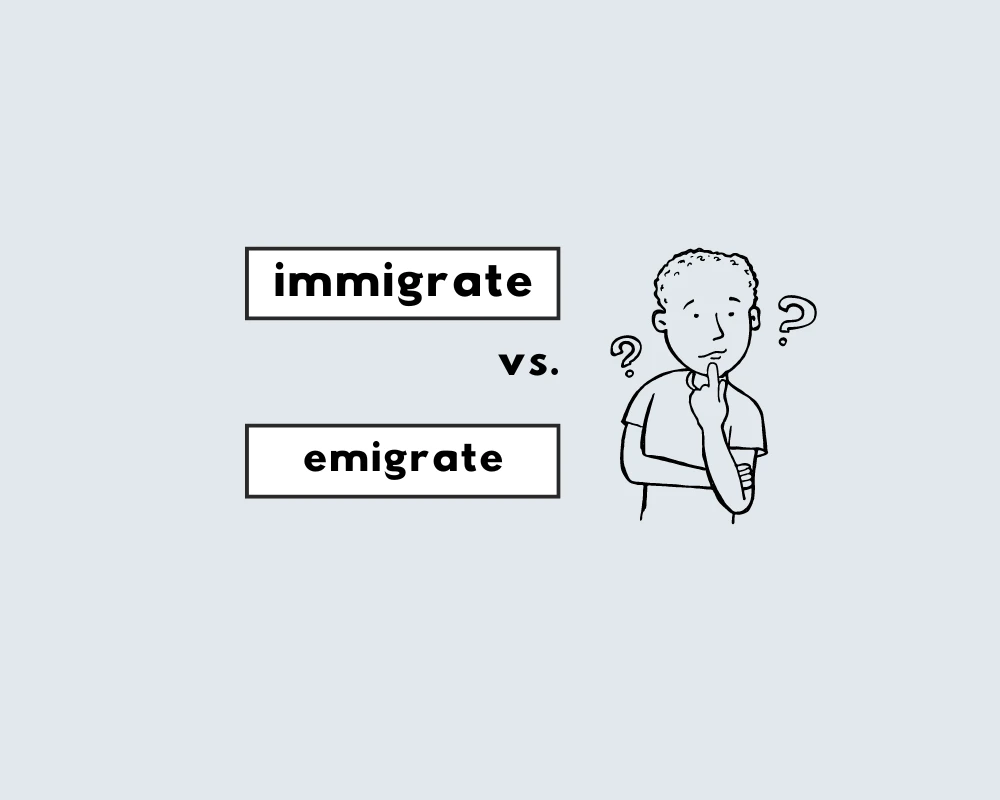Contents
Toggle
Meaning of emigrate vs. immigrate
To immigrate is the verb form of the noun immigrant; referring to someone that’s moved away from their birth country to live permanently in another country.
The verb ’emigrate’ derives from Latin, “ex” + “migrare”, meaning, ‘out’ + ‘move away’, and literally describes moving away from one’s home country.
What differentiates ‘immigrate’ from ’emigrate’ then is that the former describes the person’s arrival to a new country, where the latter focuses on leaving or exiting the home country.
“Emigrate” vs. “immigrate”, used in sentences
| Examples: “emigrate”, used in sentences |
|---|
| My mother met my father when she emigrated from Vietnam. The family left Czechoslovakia in 1968 and emigrated to America. Many people who emigrated experienced poverty and racism when they arrived. My grandparents emigrated from Vietnam to the US in the 1980s. |
| Examples: “immigrate”, used in sentences |
|---|
| About 6.6 million people immigrated to the United States in the 1970s. Her mother — who was in the audience — immigrated from China and worked as a caretaker and a secretary.—Rebecca Davis O’Brien, New York Times, 26 Mar. 2024 Wanting to learn more about manufacturing, Nitin and Meena immigrated to the Chicago area in the 1970s.—Hannah Kirby, Journal Sentinel, 12 Mar. 2024 Always attracted to difference, the artist, who immigrated to the States in 1913, spent time at the Blackfeet Reservation, in Montana, in 1920, and made some remarkable drawings of the tribe.—Hilton Als, The New Yorker, 4 Mar. 2024 |
Immigrate, synonyms
- arrive
- migrate
- colonize
- settle
- come
- move
Emigrate, synonyms
- depart
- migrate
- quit
- move abroad
Word origin
“To pass into a place as a new inhabitant or resident,” especially “to move to a country where one is not a native, for the purpose of settling permanently there,” 1620s, from Latin immigratus.
“To quit one country, state, or region and settle in another,” 1778, a back-formation from emigration, or else from Latin emigratus, past participle of emigrare “move away, depart from a place,”
Read about other misused words
Sources
- Oxford Learner’s Dictionary on “immigrate” and “emigrate”. Accessed 16 April, 2024.
- Harper, Douglas. “Etymology of emigrate.” Online Etymology Dictionary, https://www.etymonline.com/word/emigrate. Accessed16 April, 2024.










